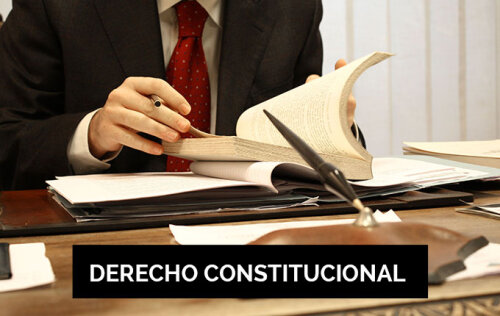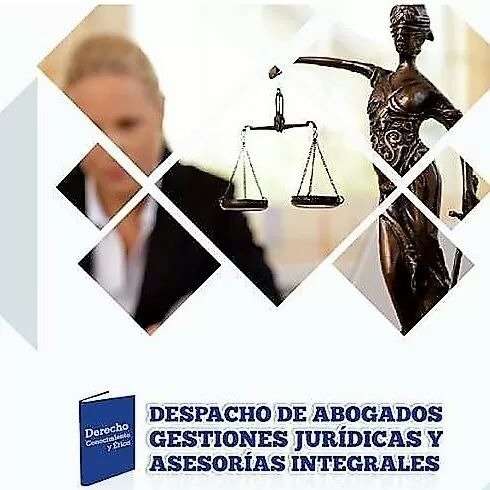Best Job Discrimination Lawyers in Colombia
Share your needs with us, get contacted by law firms.
Free. Takes 2 min.
Or refine your search by selecting a city:
List of the best lawyers in Colombia
About Job Discrimination Law in Colombia
Job discrimination in Colombia is addressed under various national laws designed to promote equality and prevent discrimination in the workplace. Colombian labor laws emphasize the equality of opportunities and treatment for all employees, regardless of race, gender, age, disability, or other personal characteristics. The Colombian Constitution, along with the Labor Code and additional statutes, provides mechanisms to combat discriminatory practices in employment settings. Ensuring a fair and respectful work environment, Colombia's legal framework aims to protect individuals from biased and unjust treatment within their professional life.
Why You May Need a Lawyer
If you face job discrimination, consulting a lawyer can be crucial for navigating the legal system and protecting your rights. Common situations requiring legal advice include:
- Unfair treatment or harassment based on personal attributes.
- Denial of employment, promotions, or equal pay due to discriminatory practices.
- Retaliation after filing a discrimination complaint.
- Difficulty in obtaining reasonable accommodations for disabilities.
- Unjustified layoffs or terminations that may reflect discriminatory motives.
Legal assistance can help you understand your rights, build a case, and take formal actions such as filing complaints with relevant authorities.
Local Laws Overview
Colombian laws addressing job discrimination include the Constitution, which guarantees equality, and the Labor Code, which outlines labor rights and obligations. Key aspects include:
- Constitutional Provisions: Article 13 prohibits discrimination and ensures equal protection under the law.
- Labor Code: Protects against discrimination in hiring, pay, and working conditions.
- Law 1010 of 2006: Addresses workplace harassment and establishes protections for victims.
- Law 1346 of 2009: Ratifies the UN Convention on the Rights of Persons with Disabilities, emphasizing workplace inclusion.
- Law 1257 of 2008: Focuses on gender equality and combats violence and discrimination against women.
Frequently Asked Questions
What constitutes job discrimination in Colombia?
Job discrimination involves any unfavorable treatment or distinction made based on attributes like gender, race, age, religion, or disability, affecting employment conditions, opportunities, or benefits.
How do I identify if I am a victim of job discrimination?
Signs of discrimination include disparities in pay or promotions, exclusion from projects, biased remarks, or inconsistent feedback compared to peers with similar qualifications and roles.
Can I file a complaint if I experience job discrimination?
Yes, you can file a complaint with entities like the Ministry of Labor or the Public Defender. It is advisable to gather documentation and seek legal advice to strengthen your case.
Is retaliation from my employer legal if I report discrimination?
No, retaliation is illegal. Employees are protected from any adverse actions, such as demotion or termination, following the reporting of discrimination.
What evidence is required to prove job discrimination?
Useful evidence includes records of discrimination incidents, witness testimonies, performance reviews, and any correspondence that demonstrates unequal treatment.
Can I receive compensation if I prove job discrimination?
Yes, victims may be entitled to compensation for lost wages, emotional distress, legal fees, and sometimes punitive damages, depending on the case specifics.
What role do trade unions play in addressing workplace discrimination?
Trade unions advocate for workers' rights and can offer support, resources, and representation in discrimination cases, enhancing collective bargaining efforts for fair treatment.
How does the Labor Inspectorate help in case of discrimination?
The Labor Inspectorate investigates complaints, conducts workplace inspections, and ensures employer compliance with labor laws, playing a crucial role in resolving disputes.
Are there affirmative action programs in Colombia for historically marginalized groups?
Yes, various programs aim to improve employment access and opportunities for women, ethnic minorities, and people with disabilities, promoting diversity and inclusion.
How does Colombia implement international standards on discrimination?
Colombia incorporates international conventions such as ILO treaties and the UN declarations into its national legislation, aligning local laws with global standards to enhance workplace equality.
Additional Resources
Consider reaching out to these entities for additional guidance:
- Ministry of Labor: Offers resources and assistance regarding labor rights and dispute resolution.
- Public Defenders: Provide legal aid and counseling for individuals facing workplace discrimination.
- NGOs like Colombia Diversa: Focus on promoting equality for diverse populations, including the LGBTQ+ community.
- International Labor Organization (ILO): Provides insights and recommendations on promoting workplace equality and labor rights.
Next Steps
If you believe you are a victim of job discrimination, consider taking the following steps:
- Document Everything: Keep detailed records of incidents, emails, and conversations related to the discriminatory actions.
- Consult a Lawyer: Seek legal advice to understand your rights and explore potential actions.
- File a Complaint: Report the discrimination to your employer's HR department and appropriate governmental bodies like the Ministry of Labor.
- Explore Legal Action: If necessary, consider pursuing legal action through the judicial system with the help of an experienced attorney.
- Engage Support Networks: Reach out to trade unions, advocacy groups, or support organizations for additional guidance and emotional support.
Lawzana helps you find the best lawyers and law firms in Colombia through a curated and pre-screened list of qualified legal professionals. Our platform offers rankings and detailed profiles of attorneys and law firms, allowing you to compare based on practice areas, including Job Discrimination, experience, and client feedback.
Each profile includes a description of the firm's areas of practice, client reviews, team members and partners, year of establishment, spoken languages, office locations, contact information, social media presence, and any published articles or resources. Most firms on our platform speak English and are experienced in both local and international legal matters.
Get a quote from top-rated law firms in Colombia — quickly, securely, and without unnecessary hassle.
Disclaimer:
The information provided on this page is for general informational purposes only and does not constitute legal advice. While we strive to ensure the accuracy and relevance of the content, legal information may change over time, and interpretations of the law can vary. You should always consult with a qualified legal professional for advice specific to your situation.
We disclaim all liability for actions taken or not taken based on the content of this page. If you believe any information is incorrect or outdated, please contact us, and we will review and update it where appropriate.
Browse job discrimination law firms by city in Colombia
Refine your search by selecting a city.
















